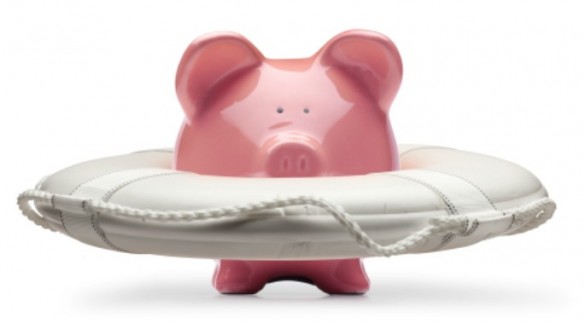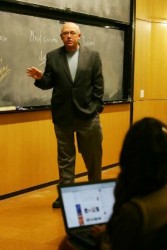
Tennesseans agree by a wide margin that the economy is the most pressing problem for state and federal government, and many believe higher taxation on the wealthiest Americans is one way to fix it.
Eighty-two percent of respondents to the Vanderbilt Poll, taken Oct. 28 through Nov. 5, said they thought the national economy was “bad” or “fairly bad.” They rated the state economy somewhat higher with 65 percent perceiving it as “bad” or “fairly bad.”
In addition, 38 percent of Tennesseans considered themselves “worse off” financially when compared to a year ago. Twenty-five percent said they expected to be “better off” in a year, while 50 percent expected their fortunes to be the same.

“The public deals with the sad state of our economy on a daily basis,” said John Geer, Distinguished Professor of Political Science and co-director of the poll. “The numbers will not change until objective conditions in the job market improve.”
The poll, conducted by Vanderbilt’s Center for the Study of Democratic Institutions, was conducted by the standards of the American Association of Public Opinion Research. It was weighted to ensure that the sample was representative of Tennessee in terms of age, gender, education, region and race/ethnicity. The Vanderbilt Poll has an error rate of plus or minus 2.6 percent.
Tennesseans agreed by a wide margin (59 percent) that state government should prioritize the economy and job creation, with education a distant second at 17 percent. And 42 percent said the reason the United States is on the wrong track is that “there is too much money in politics.”
But that’s where the consensus ends, except when it comes to raising revenues through taxing the wealthy.
When asked if measures like more regulation or government spending are needed to fix the economy, respondents were sharply divided.
Sixty-four percent opposed more government spending to help the economy while 26 percent supported it. When asked if the key was regulating the excesses of big corporations, 40 percent agreed while 32 percent disagreed.
A commanding number of Tennesseans at a wide range of incomes support raising taxes on groups defined variously as “millionaires,” “the rich” and “people making more than $250,000 a year.”
Nearly three-quarters of those making less than $75,000 a year supported more taxes on the wealthy, with that number falling to the 50 to 63 percent range when those making more than $75,000 were asked the same question.
“It is no surprise that those with higher incomes are less supportive of tax increases on the rich,” Geer said. “But it is worthy of note that even among those who are doing pretty well, there remains a strong desire to tax millionaires – those who are among the super rich.”
Tennessee skews Republican, both recent elections and the poll demonstrated. Forty-six percent described themselves as conservatives, 34 percent as moderates and 12 percent as liberals. Voters were somewhat reluctant to take on the label of the Tea Party or Occupy Wall Street, with 77 percent saying the Tea Party label did not apply to them and 76 percent preferring not to identify with Occupy Wall Street. However, 35 percent said they support the Tea Party movement’s ideas, compared with 31 percent who said they supported in principle the Occupy Wall Street movement.
“Tennesseans can receive valuable information about the opinions of their fellow citizens through this poll,” Geer said. “The Center for the Study of Democratic Institutions is pleased to provide this important public service.”